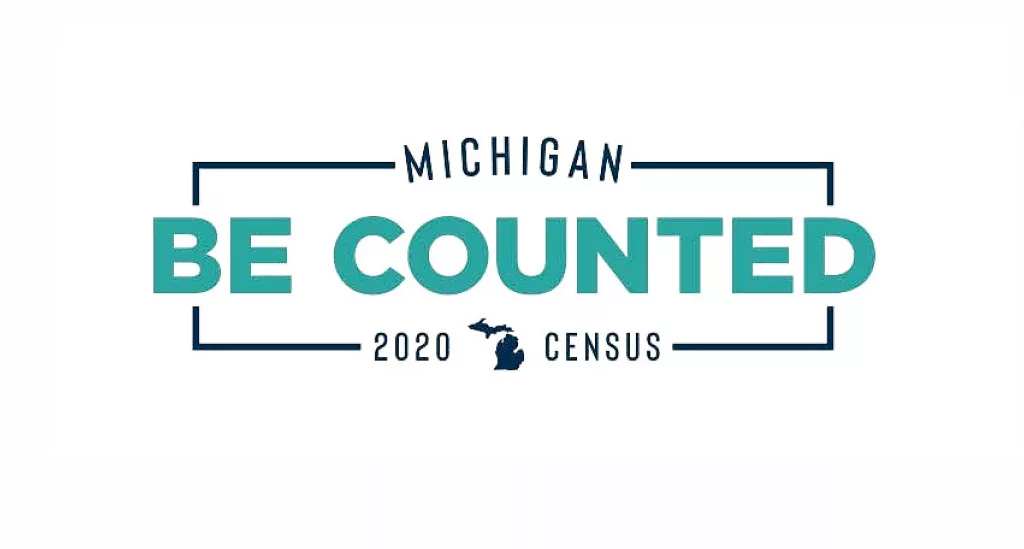If you still haven’t set aside the few minutes it takes to complete the 2020 Census questionnaire, here’s a bit of sobering news for you. You and the others who have failed to fill out the simple bit of information could end up costing the state of Michigan $24-billion in federal funding over the next 10 years.
That’s the current state of risk for Michigan where, with the September 30th deadline looming large, statewide data shows roughly 320,000 households and 800,000 people have yet to fill out the census forms either on paper or online and if none of those get counted, the state could lose billions in the coming decade.
Leaders of Michigan’s “Be Counted” campaign to promote the 2020 census have unveiled two new American Sign Language-formatted video public service announcements that appeal to the state’s approximately 740,000 deaf, deaf-blind, and hard of hearing residents to complete their census forms.
The videos coincide with new statewide data from the U.S. Census Bureau that shows Michigan through Wednesday, September 16th, still has 320,000 households and 800,000 people who have not completed the 2020 census. If they all fail to fill out the census before the September 30th national deadline, Michigan is at risk of losing $2.4 billion a year in federal funding, which would total $24 billion over the next 10 years until the completion of the 2030 census count.
By way of example, Grand Rapids stands to lose $400-million over the next 10 years if those left to file their forms do not do so…Kalamazoo faces a loss of half that amount at $200-million, and Traverse City could lost $40-million in that time frame.
The videos, which feature Karlee Rose Gruetzner, a rights representative for the Michigan Department of Civil Rights Division on Deaf, Deaf-Blind and Hard of Hearing, encourage the 7.4-percent of the state’s population who identify as Deaf, DeafBlind and Hard of Hearing (D/DB/HH) to complete the census because it will provide more federal funding for programs that support those specific communities.
In one video, Gruetzner asks, “Why does the census matter? It helps to decide how much money Michigan gets for services for the Deaf, Deaf-Blind and Hard of Hearing,” and adds, “Do you want the state of Michigan to provide you better services? Then complete the census online before it’s too late!”
Results of a yearlong census estimate and needs assessment completed in 2018 of Michiganders in the D/DB/HH communities reveal a larger population than previously estimated, as well as key concerns related to health care, access to government services and education and significant disparities in pay equity from the general population.
The census portion of the project revealed the 7.4-percent of Michiganders who identify as Deaf, DeafBlind or Hard of Hearing were almost double the findings of the 2017 American Community Survey, which was 4-percent.
Annie Urasky, Director of the Michigan Department of Civil Rights Division on Deaf, Deaf-Blind and Hard of Hearing, says, “The census reveals that the Deaf, Deaf-Blind and Hard of Hearing community has been dramatically underestimated in Michigan.”
She adds, “Such significant discrepancies lead to under-resourcing and under-representation throughout Michigan’s public and cultural life. That’s why it’s critical for everybody who identifies as Deaf, Deaf-Blind and Hard of Hearing to complete the 2020 census before September 30th so that we will be able to more effectively work to solve systemic problems facing these communities.”
Resources from the U.S. Census Bureau to help the Deaf, Deaf-Blind and Hard of Hearing communities complete the census include:
- ASL Overview of the Census and Guide to Completing the Form
- Large Print Guide to the 2020 Census
- Fact Sheet on Accessibility of the 2020 Census
- Braille Guide for printing
The 2020 census takes about 10 minutes to complete and has just nine questions: name, age, gender, ethnicity, race, number of people in the household, anyone else staying in the house on April 1, 2020, if you own or rent your home and your phone number.
Filling out the 2020 census is more convenient than ever. The form can be completed by mail, phone and online. All information shared on the census is 100-percent confidential and helps determine federal funding for health care, education, senior programs and other services D/DB/HH residents and Michiganders rely on every day. An accurate census count also determines how many seats Michigan has in Congress.
Learn more about the 2020 census at Michigan.gov/Census2020/ or Census.gov.






